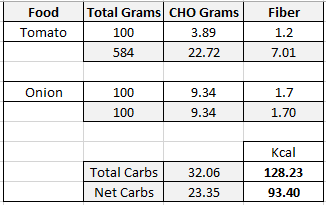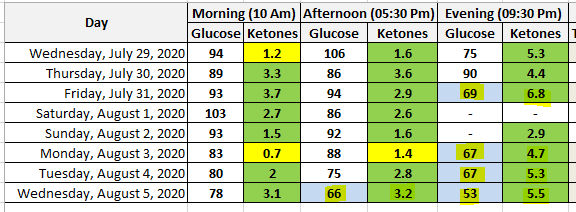Well ok, is not that simple, so we can go down as nihilistic and damn ourselves that we can´t at least have an idea or we can at least have some idea (which would be my preferred path).
We know a couple of things:
- The apparatus is not 100% reliable.
- USDA gives aproximates, as food we consume is not 1 on 1 with the charts.
- The apparatus gives a measurement of 1 type of ketone body, but not all of them.
Even with all these things in mind, and maybe even more, the Keto “diet” or way of life must have an identity in itself, which is Ketosis, and if you are not in ketosis you are not doing this way of life (And better yet, being in ketosis with your own fat if you need to lose some pounds).
All these measurements and things we do, is because we are terrified of not having a ceiling and a floor, we dislike chaos, we need to feel we have an idea of what’s going on.
I know this sounds so methapysical, but I think people like measurements because of that, the same goes when people weight (“do it at this hour!”, “Use the scale but also a measurement tape!”, “Weight yourself at the same hour!”, “After going to the bathroom!”) etc.
Is like, is human nature to at least have some idea if what they are doing is ok, usually some people rely on others to know if they are doing things right, others prefer to know themselves if they are doing things right. If there is something as “right”, right?


